209 start with J start with J

The emperor who renounced Christianity.
Julian (Flavius Claudius Iulianus) “the Apostate,” Roman Emperor, lived AD 331 or 332 to 363. Born and educated in Constantinople as a Christian, after a precarious childhood he devoted himself to literature and philosophy and became a pagan, studying in various Greek cities. In 355 his cousin Emperor Constantius called him from Athens to the court at Milan, entitled him “Caesar,” and made him governor of Gaul. Julian restored Gaul to prosperity and good government after the ravages of the Alamanni (he overthrew them at the battle of Strassburg in 357) and other Germans. Between 357 and 361 Julian’s own soldiers, refusing to serve in the East at Constantius’ orders, nearly involved Julian in war with Constantius—who, however, died in 361, making Julian sole Emperor of the Roman world. He began many reforms and proclaimed universal toleration in religion but pressed for the restoration of the older pagan worships. In 362–363 he prepared at Constantinople and then at Antioch for his expedition against Persia ruled by Shapur II. He died of a wound received in desperate battle.
Julian’s surviving works (lost are his Commentaries on his western campaigns), all in Greek, are given in the Loeb Classical Library in three volumes. The eight Orations (1–5 in Volume I, 6–8 in Volume II) include two in praise of Constantius, one praising Constantius’ wife Eusebia, and two theosophical hymns (in prose) or declamations, of interest for studies in neo-Platonism, Mithraism, and the cult of the Magna Mater in the Roman world. Misopogon (“Beard-hater”), in Volume II, assails the morals of people in Antioch; the Letters (more than eighty), in Volume III, include edicts or rescripts, mostly about Christians, encyclical or pastoral letters to priests, and private letters. Lastly in Volume III are the fragments of the work Against the Galilaeans (the Christians), written mainly to show that evidence for the idea of Christianity is lacking in the Old Testament.

The emperor who renounced Christianity.
Julian (Flavius Claudius Iulianus) “the Apostate,” Roman Emperor, lived AD 331 or 332 to 363. Born and educated in Constantinople as a Christian, after a precarious childhood he devoted himself to literature and philosophy and became a pagan, studying in various Greek cities. In 355 his cousin Emperor Constantius called him from Athens to the court at Milan, entitled him “Caesar,” and made him governor of Gaul. Julian restored Gaul to prosperity and good government after the ravages of the Alamanni (he overthrew them at the battle of Strassburg in 357) and other Germans. Between 357 and 361 Julian’s own soldiers, refusing to serve in the East at Constantius’ orders, nearly involved Julian in war with Constantius—who, however, died in 361, making Julian sole Emperor of the Roman world. He began many reforms and proclaimed universal toleration in religion but pressed for the restoration of the older pagan worships. In 362–363 he prepared at Constantinople and then at Antioch for his expedition against Persia ruled by Shapur II. He died of a wound received in desperate battle.
Julian’s surviving works (lost are his Commentaries on his western campaigns), all in Greek, are given in the Loeb Classical Library in three volumes. The eight Orations (1–5 in Volume I, 6–8 in Volume II) include two in praise of Constantius, one praising Constantius’ wife Eusebia, and two theosophical hymns (in prose) or declamations, of interest for studies in neo-Platonism, Mithraism, and the cult of the Magna Mater in the Roman world. Misopogon (“Beard-hater”), in Volume II, assails the morals of people in Antioch; the Letters (more than eighty), in Volume III, include edicts or rescripts, mostly about Christians, encyclical or pastoral letters to priests, and private letters. Lastly in Volume III are the fragments of the work Against the Galilaeans (the Christians), written mainly to show that evidence for the idea of Christianity is lacking in the Old Testament.
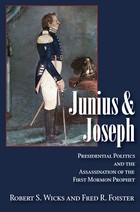

The just peace movement offers a critical shift in focus and imagination. Recognizing that all life is sacred and seeking peace through violence is unsustainable, the just peace approach turns our attention to rehumanization, participatory processes, nonviolent resistance, restorative justice, reconciliation, racial justice, and creative strategies of active nonviolence to build sustainable peace, transform conflict, and end cycles of violence. A Just Peace Ethic Primer illuminates a moral framework behind this praxis and proves its versatility in global contexts.
With essays by a diverse group of scholars, A Just Peace Ethic Primer outlines the ethical, theological, and activist underpinnings of a just peace ethic.These essays also demonstrate and revise the norms of a just peace ethic through conflict cases involving US immigration, racial and environmental justice, and the death penalty, as well as gang violence in El Salvador, civil war in South Sudan, ISIS in Iraq, gender-based violence in the Democratic Republic of Congo, women-led activism in the Philippines, and ethnic violence in Kenya.
A Just Peace Ethic Primer exemplifies the ecumenical, interfaith, and multicultural aspects of a nonviolent approach to preventing and transforming violent conflict. Scholars, advocates, and activists working in politics, history, international law, philosophy, theology, and conflict resolution will find this resource vital for providing a fruitful framework and implementing a creative vision of sustainable peace.
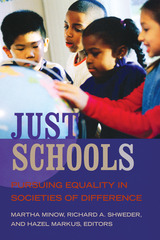
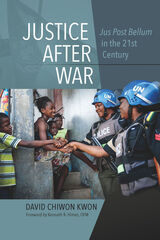

This book presents an in-depth exploration of the administration of justice during Islam’s founding period, 632–1250 CE. Inspired by the scholarship of Roy Parviz Mottahedeh and composed in his honor, this volume brings together ten leading scholars of Islamic law to examine the history of early Islamic courts. This approach draws attention to both how and why the courts and the people associated with them functioned in early Islamic societies: When a dispute occurred, what happened in the courts? How did judges conceive of justice and their role in it? When and how did they give attention to politics and procedure?
Each author draws on diverse sources that illuminate a broader and deeper vision of law and society than traditional legal literature alone can provide, including historical chronicles, biographical dictionaries, legal canons, exegetical works, and mirrors for princes. Altogether, the volume offers both a substantive intervention on early Islamic courts and on methods for studying legal history as social history. It illuminates the varied and dynamic legal landscapes stretching across early Islam, and maps new approaches to interdisciplinary legal history.
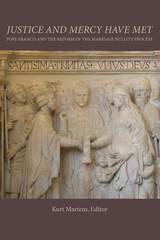
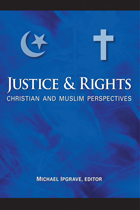
Justice and Rights is a record of the fifth "Building Bridges" seminar held in Washington, DC in 2006 (an annual symposium on Muslim-Christian relations cosponsored by Georgetown University and the Church of England). This volume examines justice and rights from Christian and Muslim perspectives—a topic of immense relevance for both faiths in the modern world, but also with deep roots in the core texts of both traditions.
Leading scholars examine three topics: scriptural foundations, featuring analyses of Christian and Muslim sacred texts; evolving traditions, exploring historical issues in both faiths with an emphasis on religious and political authority; and the modern world, analyzing recent and contemporary contributions from Christianity and Islam in the area of freedom and human rights.
READERS
Browse our collection.
PUBLISHERS
See BiblioVault's publisher services.
STUDENT SERVICES
Files for college accessibility offices.
UChicago Accessibility Resources
home | accessibility | search | about | contact us
BiblioVault ® 2001 - 2024
The University of Chicago Press









